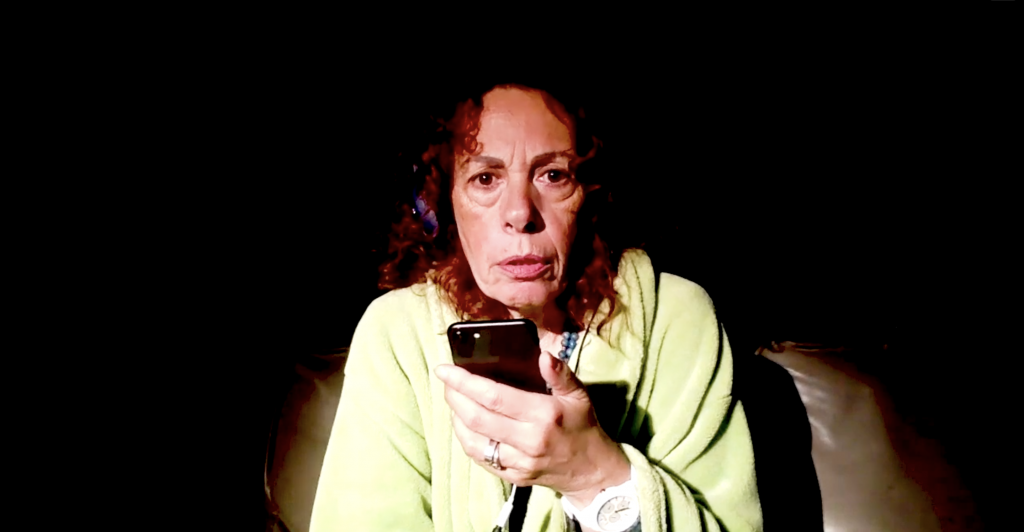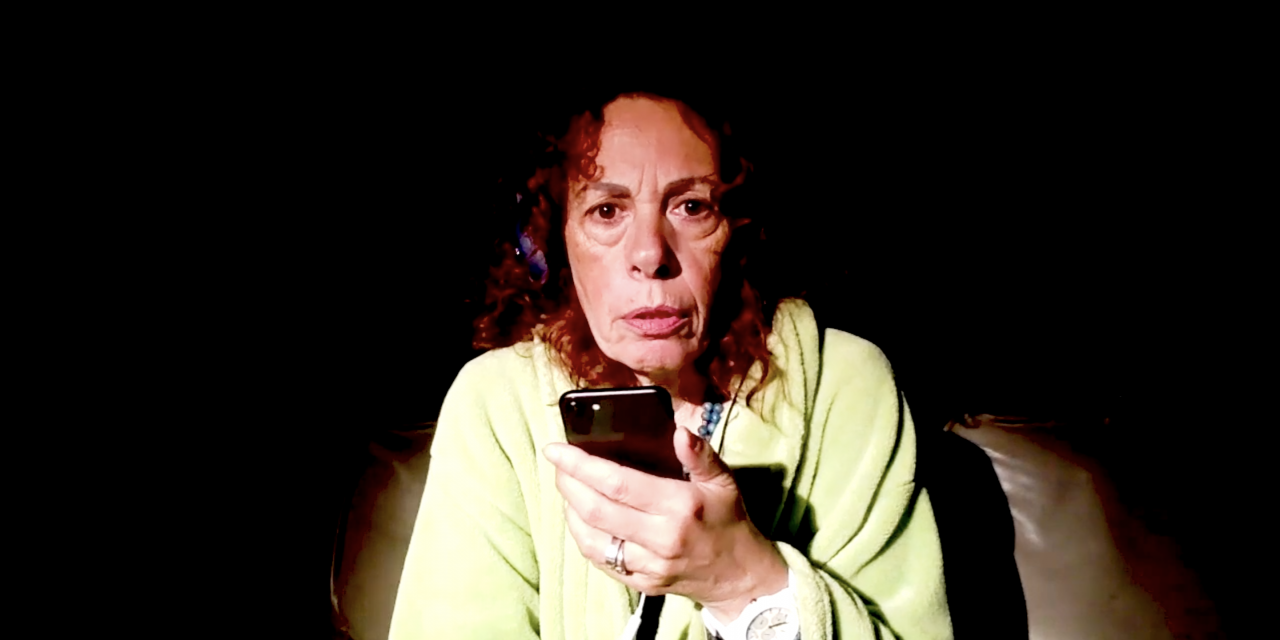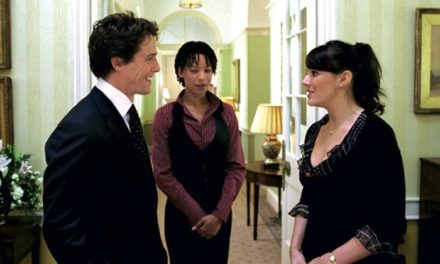Although Jean Cocteau penned “La voix humaine” (“The Human Voice”) in 1928, it’s a production for our times. As spiritual predecessor to renowned monologues like “Life of Pi” (2012) and “Phone Booth” (2002), “The Human Voice” follows a desperately lonely woman as her tenuous grip on sanity gradually unravels during a phone call with a former lover. It’s believed that Cocteau’s impetus for penning “La voix humaine” was the growing popularity of household telephones in the 1920s, intending for the play to comment on the ways that technology helps yet hinders human connection. The play’s idiosyncrasy lies in its dramatic structure; throughout the production, the audience is privy only to the protagonist’s side of the conversation. The result is a moving and often unnerving study of the desperation that accompanies inescapable loneliness, the arduous task of navigating heartbreak alone and technology’s role in connecting people.
If any of this sounds familiar to you, you’re not alone. In an introduction to their productions of “La voix humaine,” directors and Emory professors Donald McManus and Michael Evenden discussed how the ongoing pandemic influenced their decision to stage the play.
“[At first, my] students had a somewhat cynical reaction to [absurdist] plays,” McManus explained. “In a few short months, the students were living the life that the characters in these plays are caught in, and suddenly perhaps their awareness of what that world was like was much more vivid.”
To make the octogenarian script contemporarily relevant without sacrificing its dramatic depth, McManus and Evenden present two differing interpretations. McManus’ “La voix humaine,” is performed entirely in French and stars Dominique Davillé as the tragic heroine, while Evenden’s “A Human Voice,” stars Willis Hao (18Ox, 20C) and features English dialogue. Although both renditions are recorded from home and follow the same plot, McManus and Davillé’s production is more traditional, replete with differing camera angles and sets. Evenden and Hao’s enactment feels more personal, with the protagonist’s computer camera being the audience’s only perspective throughout the play.
Both directors opt for a present-day setting in their respective adaptations. McManus’ protagonist only resorts to the telephone after a call from her laptop fails, while the audience views Evenden’s production exclusively through the Zoom user interface. While one could question the decision to modernize the play by claiming that it trivializes the importance of the telephone as the protagonist’s only means of communication, the underlying themes of despondent loneliness are preserved, if not heightened, by the play’s updated setting.

Dominique Davillé expertly conveys the teetering composure of her tragic character in “La voix humaine.” (Theater Emory/Donald McManus)
McManus’ French production provides a viewing experience closer to that of the original play; the audience’s singular focus on Davillé’s nameless protagonist is compounded by subtle details that add to the feeling of isolation and emotional turmoil. To capture the hollow existential dread that accompanies acute loneliness, McManus plays on people’s innate fear of the dark by shrouding the protagonist’s apartment in a pitch black backdrop. The emptiness takes on an oppressive and encroaching quality, inviting viewers to wonder what lies just out of view. In doing so, McManus allows viewers to fill the blackness with their own guesses at what the protagonist’s apartment looks like while simultaneously symbolizing the despair that hides behind Davillé’s pleading smile, threatening to engulf her character at any moment should the phone line be cut off. Halfway through the play, however, the setting changes as Davillé’s character paces in front of a stark white backdrop adorned with abstract red art, exclaiming “je souffre, je souffre!” (“I suffer, I suffer!”) in exasperation, reflecting the character’s shift from low, depressive energy to high-energy mania as her cheery facade begins to slip.
Of course, Davillé and Hao star as both interpretations’ lone troubadour. Performing a monodrama well is no mean feat — the full weight of the narrative, dialogue and complex thematic content fall squarely on the shoulders of the sole player. To make matters worse, the lack of a fellow actor, and in this case, an audience, denies the solitary performer the opportunity to feed off of human energy in the room — one of theater’s great pleasures.
In spite of this, both actors portray the oscillating temperament of their character with aplomb; Hao makes use of Zoom’s “stop video” button to emphasize his off-screen weeping before turning the video back on to reveal a plastered-on smile, while Davillé’s deft delivery and expert use of props captures the grief and hopelessness of her character’s situation with varying subtlety and frenzy.
Where McManus’ interpretation remains slightly more faithful to the original, Evenden brings the present-day elements of his production to the fore by using Zoom as his protagonist’s conversation medium. Evenden applies his creative license further by changing the gender of the protagonist, a decision which he described as “a very exciting experiment.” In the introduction to his interpretation, Evenden cites the play’s autobiographical context as having a partial influence on this change — during the writing of the original script, it is believed that Cocteau was in the throes of opioid withdrawal.
Though the technological problems that feature as part of Evenden’s production connect the play’s themes of isolation to our reliance on Zoom in 2021, the trope was at risk of growing tired after sustained use. Once or twice, the technological issues detracted from my investment in the story; just when things were ramping up and I was really engaging with Hao’s performance, a “your internet connection is unstable” warning would appear, and my suspension of disbelief would be compromised, jettisoning me back to the daily foibles of Zoom and distance learning that we all know so well.
Fortunately, this is a minor concern in an otherwise successful effort. Aided by excellent performances from Hao and Davillé, both directors manage to connect Cocteau’s nearly century-old ruminations on loss, isolation and technology with the world’s loneliness in 2021.
Cole Huntley (23C) is from London and is majoring in business and French studies. Some of his favorite things include bluegrass music, films about time travel and trying (not very successfully) to write poetry. Huntley is fascinated by the idea that people can either write an ocean of words as deep as a puddle or a puddle of words as deep as an ocean. Contact Huntley at chhuntl@emory.edu.






